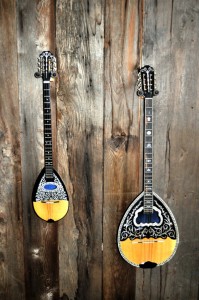
“What is this?” the airport security guard demands of my long, thin package.
“It’s kind of like a bouzouki…” I start to explain.
He interrupts with a firm, “This is not a bouzouki. Open it.”
I untie the package. I know it’s not a bouzouki: It’s kind of a mini-bouzouki: a lute shaped instrument with three courses of two strings. Other guards gather around. “It’s zzhjour-rrahs” one of them seems to say.
“A jurass?” I repeat.
“No, a jurass,” he says back.
I try again’ “JurAHZH?” But I still don’t get it. Nor the next time, or the next. Another guard tries to help us move things along. “How do you say Jurassic park? Like that. Jurass.”
Aha! Lightbulb moment! “Jurass!” I say triumphantly.
“No!” they cry. By the time they let me go, I have learned my lesson: The next time, I will answer “an instrument.”
I’d found my tzouras (I’ve since looked it up) in the Plaka, Athens’s version of a Middle-Eastern bazaar. The bustling “neighborhood of the gods” is so called because it lies in the shadow of the Parthenon, its cluttered shops and stalls lining narrow labyrinthine streets once trod by Socrates and Plato. This is no mere hyperbole: The Plaka contains Adrianou Street, the oldest continuously used street in Athens, which supposedly has the same layout it did in antiquity. Lured into a shop by the beautiful details of the instruments on display, I found myself looking at bouzoukis of all shapes and sizes in various stages of construction. For me, a musician and shopper, one thing stood out: Some of the smaller instruments could be carried on a plane.
Once inside, I met the instrument maker himself; his grand-daughter translated as he explained the tuning of the various kinds and sizes of instruments. He needed no translation as he demonstrated them one by one. The resonant characteristic Greek twang, happy and wistfully melancholy at the same time, echoed in the small space. $75 bought me an instrument that speaks to me of my visits to Greece. It lives on my wall, but it’s no mere decoration: This is an instrument that has had a chance to sing.
In Your Bucket Because…
- You’ll shop the same streets where the great philosophers of Athens wandered three thousand years ago.
- It’s a bustling, sense-assaulting experience with the possibility of finding hidden treasures.
- Good for: Shoppers who like to be surprised and tourists who like to wander.
The Plaka in Athens
The Plaka, as it turns out, has something for everyone, and, like Greece itself, it seems to embody new and old, eastern and western: the result of thousands of years of being a cultural collision zone, influenced by (and having an influence on) Egypt to Rome to Constantinople and beyond. There’s plenty of junk in the cluttered bazaar, but there are treasures, too, not to mention the chance to stop for a taste of baclava, a snack of gyros, a glass of ouzo, or a cup of coffee (warning: they make it strong).
Shopping for Crafts and Unique Greek Souvenirs
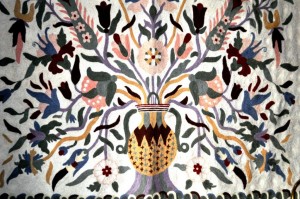
- Embroidered fabrics: Wall hangings or pillow covers are available in some of the Athens tourist markets, and some are quite ornate, featuring traditional themes such as the tree of life, olive trees, or scenes from mythology. Small, fine work is more likely to have been handmade in Greece: Some of the larger, courser fabrics are Chinese imports.
- Musical instruments: A bouzouki is an eight-stringed instrument that is a sort of Greek mandolin. As the defining sound of Greek folk music, it makes a lovely Greek souvenir. Expect to pay $75 and up for the smaller tzouras, and $200 and up for a full-sized bouzouki, depending on the maker and quality. The instruments are easily learnable by guitarists, but are usually so beautifully decorated that they make attractive wall pieces, too.
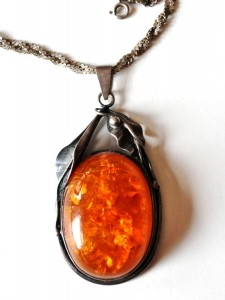
- Jewelry: Amber and silver are plentiful in the Plaka, though fakes also abound. If the price is too good, be suspicious. Jewelry is often based on Byzantine designs, or on designs copied from the ancient Greeks. If you’re headed to the islands, especially Santorini, Patmos, Rhodes, and Nisyros, there are some wonderful shops that specialize in locally (or at least Greek) crafted jewelry.
- Liqueur: Ouzo is Greece’s famous licorice-flavored liqueur, similar to anisette, pastis, or sambucca. Raki is the other Greek liqueur, but don’t confuse the Greek version with Turkish raki. The latter is also anise-flavored, while in Greece, raki is a bitter, acquired taste.
- Olive Oil: The olive tree was Athena’s gift to the Greeks, and they use it in virtually everything they cook. Olive oil infused with herbs is available, often in attractive packages of fancy-shaped bottles, and makes an attractive gift to take home, although you have to pack it carefully in checked luggage unless you buy it air-side at the airport. (Direct flights only; if you have to change planes and go through security a second time, you’ll have to surrender it). Olive oil soaps are also popular souvenir items, especially on Crete, and don’t have the same travel hassles.
Buying Inexpensive Trinkets and Gifts from Greece
Busts and statuettes are, of course, available the world over, but even if you’re not usually inclined to buy museum replicas, you might change your mind in Greece. The ancient world is evident everywhere here, even in the spanking new underground subway system, where excavations led to one archaeological discovery after another and some are displayed for the edification of waiting passengers. Museum-quality reproductions of art from ancient Greece are available at museum shops and galleries. Street stalls sell a variety of trinkets, including reproductions of the Acropolis. You can also buy street-artist paintings of the Parthenon and other Athens landmarks, though quality varies tremendously.
I don’t usually recommend T-shirts, as they are so ubiquitous, but Athens is the home of the modern and ancient Olympics. You’ve got to admit that an Athens 2004 Olympic T-shirt is a pretty cool gift to bring home to the sports lover in your life.
Matia are the blue black and white glass eyes that ward off the “evil eye.” They are available for a dollar or two everywhere, including the airport if you need a last-minute trinket.
Last and definitely least: How about a grain of rice? Almost unbelievably, cottage industries have spouted up in the Plaka selling grains of rice to tourists. The gimmick? The vendors carve your name into the rice with an almost microscopic pin. I’m not sure what the attraction is, but you’ll find plenty of people selling this bemusing souvenir.
The bottom line? From a gimmicky carved grain of rice to a beautifully handmade musical instrument, souvenirs abound in Greece. Whether you shop at leisure on the islands, or in the bustle of Athens’s Plaka, and you’ll have no trouble finding something unique and memorable to bring home from this land of sunshine and wine-dark seas.
Practicalities
If you’re headed for the Greek islands, you may want to hold off purchasing a few items such as pottery (Sifnos), leather goods (Symi), handcrafted jewelry (Santorini and Sifnos), sponges (Symi and Karpathos), Greek icons (Rhodes and Patmos), olive oil soap (Crete) and mastic (Chios). Check out Shopping the Greek Islands for more information.
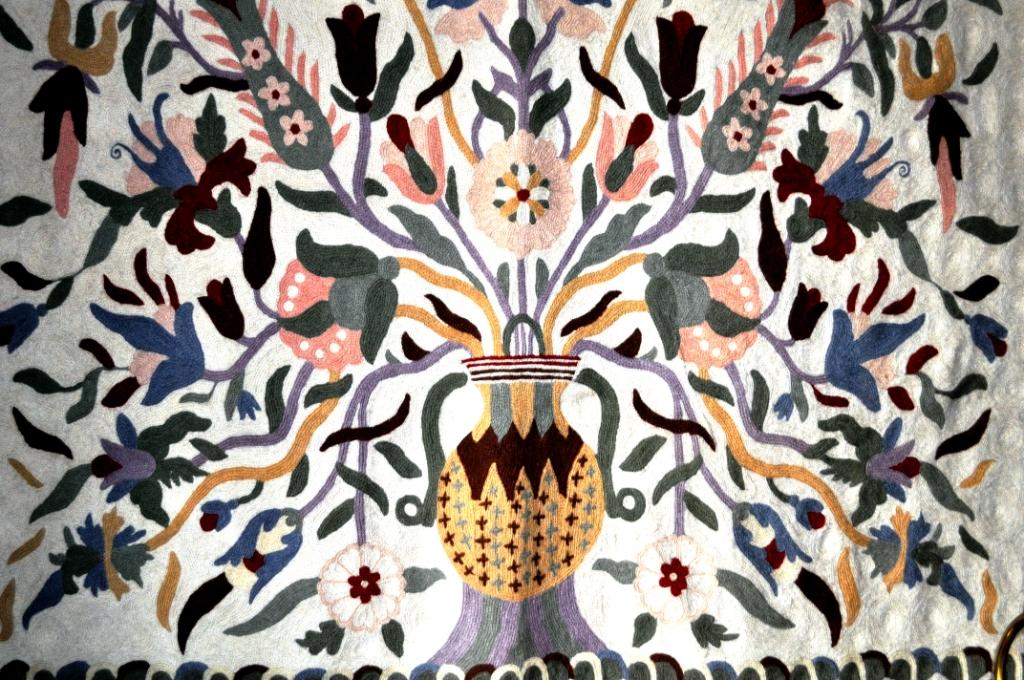

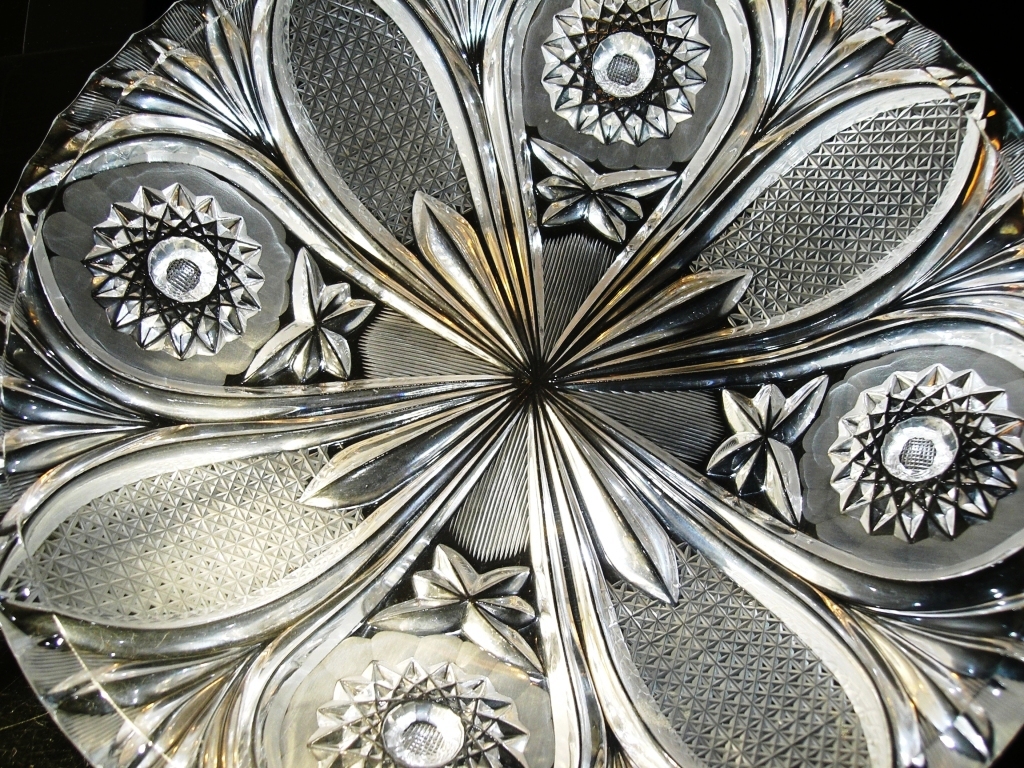
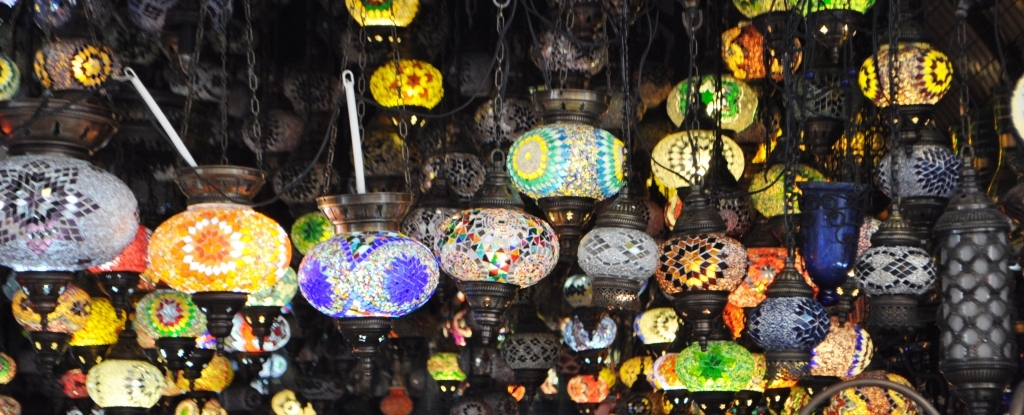
My congrats for your post and for your interest to greek musical instruments.
In case that you or your readers are further interested in explore the hand made greek traditional musical instruments I would recommend one of the most well known greek craftsmen Remoundos. Check out his work in this site (www.remoundos.gr)